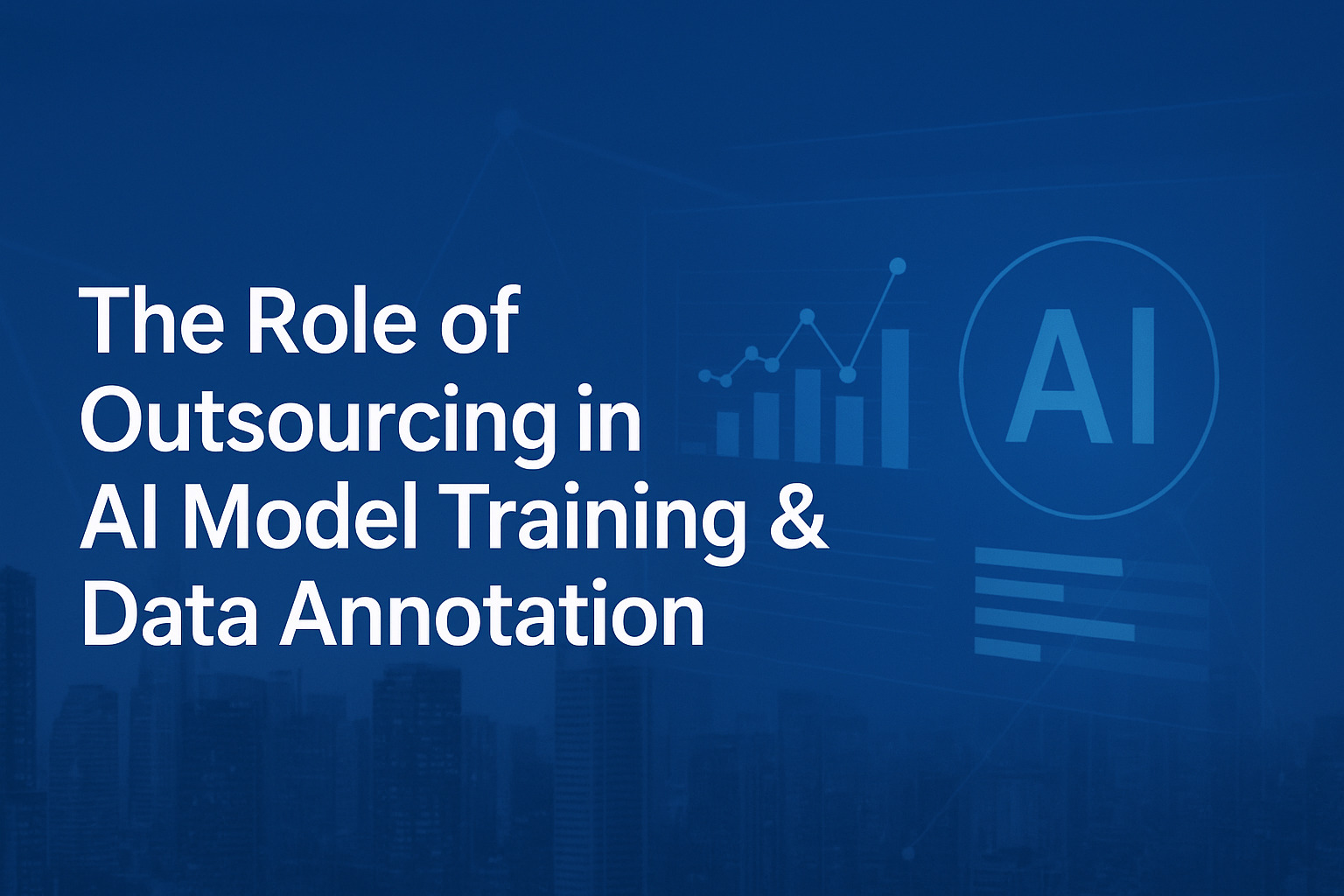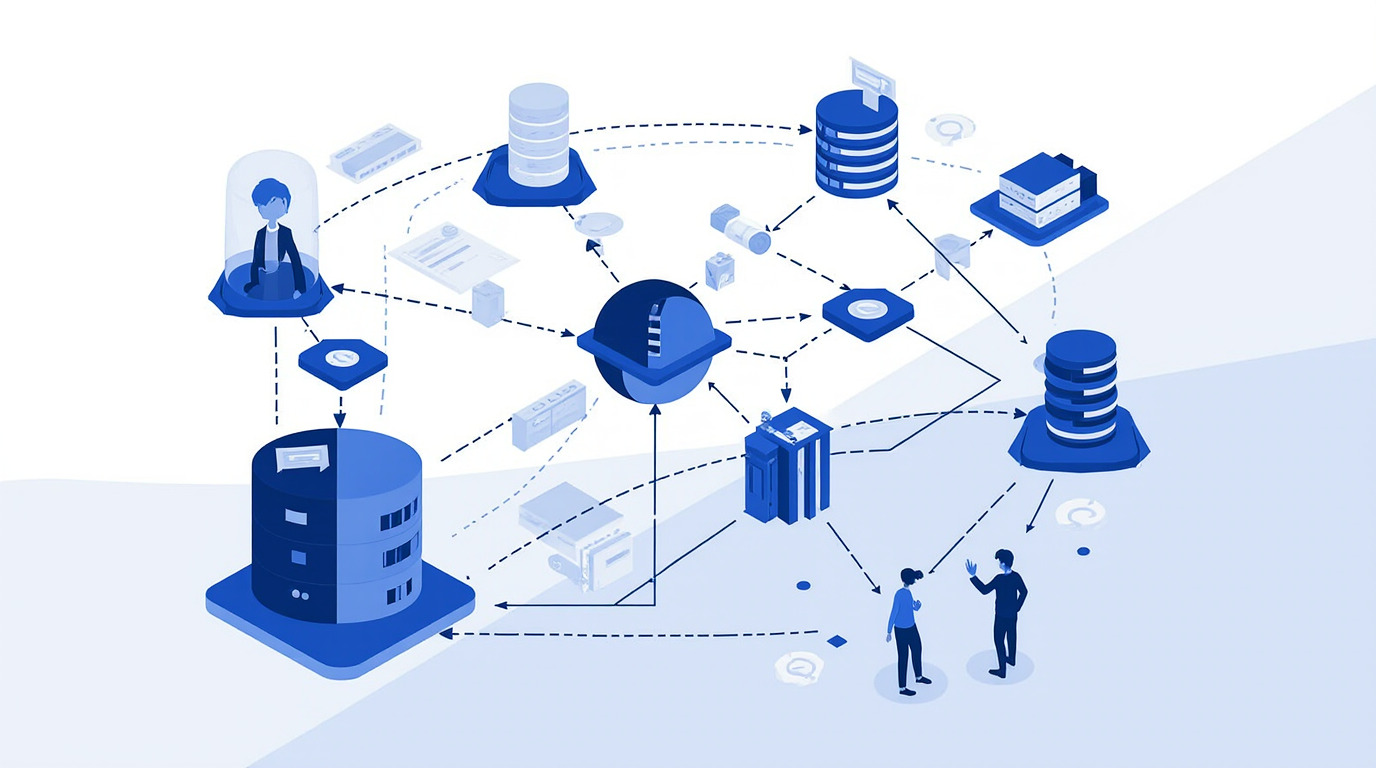The Role of Outsourcing in AI Model Training & Data Annotation
- 1 min read
Unlock scalable, high-quality AI training data by leveraging outsourcing for model development, annotation and delivery—key to competitive AI systems.

Introduction
In today’s accelerating AI landscape, the gap between innovative models and market-ready deployment often comes down to one bottleneck: training data quality and volume. Many organisations find that gathering, annotating and preparing data in-house delays time-to-market and diverts engineering focus.
That’s where strategic outsourcing plays a pivotal role. By partnering with specialised providers for tasks such as annotation, data preparation and even parts of model training, companies can gain scalability, speed and access to domain expertise. For organisations like Euro IT Sourcing supporting engineering teams across Europe, understanding how to optimise outsourcing in the AI/data-annotation value chain is becoming a strategic differentiator.
In this article we explore the challenges companies face, the modern outsourcing approaches, technology and vendor-models that make a difference, and how to realise measurable impact.
The Challenge

What companies struggle with
- Massive data volumes – Advanced models often require millions of annotated data points across modalities (image, video, audio, text) and domains. (Reuters)
- In-house capacity limitations – Building, training and managing dedicated annotation teams, tools, workflows and quality frameworks is resource-intensive and distracts from core AI development. (neowork.com)
- Quality risks and model performance impact – Poor annotations lead to degraded model performance, generalisation issues or bias. (new.nasscom.in)
- Scalability and flexibility – Demand may spike (e.g., large-scale pilot, data refresh) and in-house teams struggle to ramp up or down quickly. (Outsource Accelerator)
- Data security, regulatory and compliance constraints – Especially for sensitive domains (healthcare, autopilot, finance) the outsourcing choice must satisfy rigorous requirements. (Unitlab Blogs)
The Approach
Modern strategies and best practices for outsourcing
Selecting the right outsourcing model
- Crowdsourcing / micro-tasks: Good for high volume, simple annotation tasks. Pros: low cost, rapid scale. Cons: lower control of quality, limited domain expertise. (neowork.com)
- Dedicated vendor teams: Providers deploy trained annotators, domain experts, infrastructure, workflows. Better for complex, domain-specific tasks. (Subul Data Annotation)
Defining clear guidelines and quality metrics
- Establish “golden set” samples to benchmark vendor output. (neowork.com)
- Define metrics: accuracy rate, inter-annotator agreement, turnaround time, error rate. (neowork.com)
- Build feedback loops and training for annotators; clear instructions improve accuracy significantly. (arXiv)
Ensuring scalability and flexibility
- Use vendors with global teams, multi-timezone operation, and variable pricing models. (Outsource Accelerator)
- Ensure that workflow supports bursts in annotation volume without compromising quality or schedule.
Governance, security and compliance
- Require non-disclosure agreements (NDAs), established data handling protocols, encryption, access controls. (Unitlab Blogs)
- Confirm vendor familiarity with regulatory regimes (e.g., GDPR in Europe) if data crosses borders.
The Technology Factor

How tools, frameworks and outsourcing models enable success
- Annotation platforms both in-house and vendor side now integrate AI-augmented pre-labelling to reduce human effort, speed workflows and maintain quality. (new.nasscom.in)
- The global data annotation tools market is projected to grow significantly (for example USD 3.9 billion in 2024 and up) highlighting increasing investment in this infrastructure. (community.nasscom.in)
- Domain-specific annotation (e.g., LiDAR for autonomous vehicles, medical imaging) requires specialized tools, workflows and expert annotators—outsourcing partners often bring this ready-made. (Subul Data Annotation)
Industry Insight
According to recent data and market reports:
-
The annotation services market is forecast to grow with a strong compound annual growth rate, reflecting how critical high-quality labelled data has become to AI model performance. (EGYI)
-
One news example: Turing, a firm specialising in labelled data vendors, reported its revenue tripled to USD 300 million, underlining the surge in demand for annotation services. (Reuters)
-
From conversations in tech/ML forums:
“Quality … a 5 % difference may make a model work or fail.” (Reddit) “Outside vendors are going to get better economies of scale.” (Reddit)
-
These indicators reinforce that outsourcing annotation is no longer optional—it is central to AI operational maturity for many organisations.
Euro IT Sourcing Perspective
From our experience working with European tech firms and engineering teams:
-
We observe that clients increasingly treat data annotation outsourcing not as a tactical cost-cutting exercise, but as a strategic capability: one enabling faster iteration, higher model quality and global delivery flexibility.
-
We see patterns such as:
- When clients attempt to keep annotation fully in-house, delays stack up and model refinement slows.
Results or Impact
When executed thoughtfully, outsourcing annotation and training-data tasks delivers measurable impact:
- Time-to-market reduction – For example, instead of an internal team spending months building an annotation workforce, a trusted vendor can complete large batches within weeks. Some providers claim cost savings of 50-70 % compared to in-house alternatives. (Outsource Accelerator)
- Improved model performance – With better annotation quality and domain expertise the risk of “garbage in—garbage out” drops, improving generalisation and trustworthiness. (new.nasscom.in)
- Scalability and flexibility – Organisations can scale annotation volume up or down per sprint without committing fixed overhead; this improves budget control. (Subul Data Annotation)
- Resource reallocation – Engineering teams free from annotation duties focus on core AI development and product features, improving overall innovation throughput.
- Compliance and risk-mitigation – Engaging annotation partners with robust frameworks reduces exposure to data-breach, bias, and regulatory penalties.
Concretely, a typical benchmark: companies that outsource mature annotation tasks can shift 30-40 % of internal data-preparation overhead to vendors, enabling the internal team to accelerate the next model version by 20-30 % while maintaining or improving accuracy.
Author: Matt Borekci Contact Us: Euro IT Sourcing

Turkish Tech Renaissance: The Remarkable Growth of the IT Industry
Turkey's IT industry is rapidly growing, driven by its strategic geographic location, a young and educated workforce, and strong government support. The country's thriving startup ecosystem, emphasis on digital transformation, and increasing IT exports are positioning Turkey as a significant player in the global technology landscape. This growth trajectory highlights Turkey's potential and ambition in shaping the future of technology both domestically and internationally.

TURKIYE: The Rising Star of IT Outsourcing
Turkey is quickly becoming a key player in the IT outsourcing industry, thanks to its strategic location, skilled workforce, and cost-effective solutions. Positioned between Europe and Asia, Turkey offers businesses access to top-tier IT talent at competitive prices, with minimal language and cultural barriers. The country's commitment to data protection and innovation further enhances its appeal as a reliable and cutting-edge IT outsourcing partner.